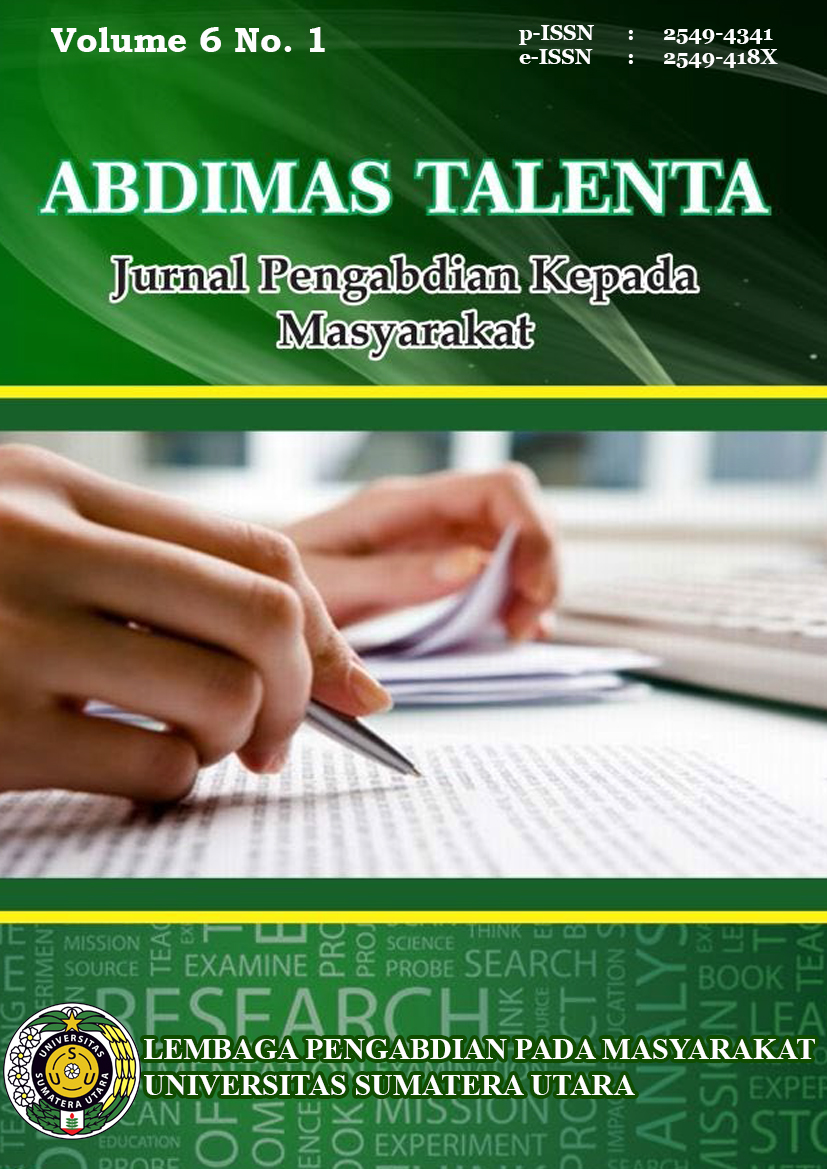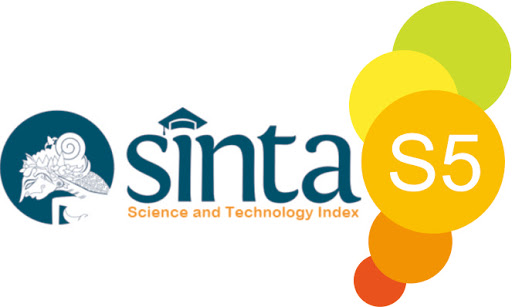Alternative Energy from Cow Dung Waste to An Independent and Creative Community
DOI:
https://doi.org/10.32734/abdimastalenta.v6i1.4752Keywords:
biochar, cow dung waste, biological fertilizer, cattle farmer community, community service teamAbstract
Rural communities often pay less attention to cow dung waste and its handling, as well as environmental preservation and environmental health. For rural communities, cow dung waste is considered of no value and is often underestimated. In the cattle farmer community, they almost do not care about their cow dung waste and they usually make it into compost for plant biological fertilizer. In fact, there are other alternatives that can be used as alternatives to energy and can also be economically valuable from materials that are underestimated by the community. Apparently, cow dung waste has a gas that can be reactivated when mixed with the right ingredients. Besides having an unpleasant smell, cow dung waste can also pollute the environment. Therefore, it is a challenge to be able to process cow dung waste into useful materials and make rural communities more creative, productive, and independent. In addition, it is hoped that the processing of cow dung waste can be used as a solution in an effort to make the village environment more beautiful and healthier. The processing of cow dung waste is considered important and useful, so the community service team provided information about making biochar from cow dung waste which can be used as an alternative energy substitute for charcoal. In addition, the community service team also taught the cattle farmer community about the importance of maintaining a clean environment and the dangers caused by cow dung waste.
Downloads
Downloads
Published
Issue
Section
License
Copyright (c) 2021 ABDIMAS TALENTA: Jurnal Pengabdian Kepada Masyarakat

This work is licensed under a Creative Commons Attribution-ShareAlike 4.0 International License.
The Authors submitting a manuscript do so on the understanding that if accepted for publication, copyright of the article shall be assigned to Jurnal Abdimas TALENTA as well as TALENTA Publisher Universitas Sumatera Utara as the publisher of the journal.
Copyright encompasses exclusive rights to reproduce and deliver the article in all forms and media. The reproduction of any part of this journal, its storage in databases and its transmission by any form or media, will be allowed only with written permission from Jurnal Abdimas TALENTA.
The Copyright Transfer Form can be downloaded here.
The copyright form should be signed originally and sent to the Editorial Office in the form of original mail or scanned document.












